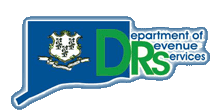2017 Legislative Summary
State tax legislation enacted during the 2017 Regular Session include the following:
- Partial payments. Applies taxpayer partial payments made on or after July 1, 2018, first to penalty but next to the tax due balance and then to interest. Under prior law, taxpayers too often could never catch because partial payments were never enough to reduce the tax balance which continued to accrue interest.
- Income repatriation. Requires that certain off-shored, deferred income reportable for federal tax purposes by 2017 also be identified and reported for state tax purposes. Connecticut and New York are expected to benefit significantly from this income repatriation.
- Corporation business tax due date. Changes the due date for the Corporation Business Tax return to the fifteenth day of the month following the federal due date. This allows taxpayers more time to prepare an accurate return based on federal filing.
- Sales tax permits. Permits issued or renewed after October 1, 2017 will be for a 2-year rather than the current 5-year term. This will further strengthen the state’s already successful initiative to remedy tax delinquencies and deficiencies by requiring compliance as a condition of renewal. It also helps avoid balances due that accrue for too long and become more difficult to resolve.
- Sales tax enforcement. Authorizes DRS to require that taxpayers with significant adjudicated non-compliance (1) remit weekly; and (2) either make timely deposits into an irrevocable trust account that may be swept by DRS in the event of non-payment or contract with a third-party certified service provider as fiscal agent for tax collection and remittance. In order to encourage compliance, DRS may permit a certified service provider to retain a portion of the tax not to exceed its service cost.
- Withholding tax security. DRS may require posting a bond or other security for payment by non-compliant taxpayers. This is already authorized for sales and admissions taxes.
- Withholding on distributed income. Beginning January 1, 2018, payers of pensions, annuities and other distributed income must withhold income tax for resident payees. Too often, taxpayers drawing down on tax deferred accounts forget to anticipate such end-of-year tax liabilities.
- 1099-MISC reporting. Copies of non-wage income reports to IRS must be filed with DRS by January 31st – up to two months sooner. This will help assure state compliance and reduce fraud.
- 1099-K reporting. Copies of annual federal reports of credit card sales must filed with DRS within 30 days of the federal due date. This provides information to DRS much sooner for purposes of comparison with state reported income from sales.
- B&B occupancy tax. Replaces the current occupancy tax and separate sales tax for B&B’s with a single occupancy tax at 11%.
- Tax preparer standards & registration. Currently, Connecticut has no standards for most commercial tax preparers. DRS is seeing increased errors and fraud involving income tax preparers. By October 1, 2017, all income tax preparers must adhere to standards of conduct protecting taxpayers from unfair practices and fraud – subject to civil penalties. By January 1, 2019, commercial preparers (not including accountants, attorneys, IRS enrolled agents, IRS-qualified volunteers and others) must register with DRS for a two-year renewable permit on the basis of basic qualifications. Starting January 1, 2020, qualifications include completing available IRS annual filing season training.
- Dry cleaning drop stores. Exempts “drop stores” that do no actual dry cleaning from the DRS-collected remediation fund surcharge.
- Tobacco tax collection and enforcement. Provides successor liability for cigarette dealers and tobacco product distributors or unclassified importers; requires on-premises access to sales records; and extends state criminal racketeering enforcement to include tobacco products.
- Penalty waivers. On and after July 1, 2017, requests must be filed no later than one year after DRS notice of penalty. Penalties may not be waived for weekly sales tax filers.
- Collection warrants. Warrants will now be continuously enforceable for up to 180 days or until the amount of deficiency is paid.
- Mental health check-off. Income tax refunds may be contributed to a new, non-lapsing state account to fund community-based mental health care.
- Sales tax information reports. Provides a $500 per violation, per day penalty for failure to file informational reports on Connecticut sales. This significantly strengthens our efforts to identify untaxed e-commerce.
- Invest CT Fund tax credits. Investment credits are transferable.
- Angel investor credits. Investment in any type of business will qualify, but investment credits in emerging technology businesses are limited.
- Domestic surplus lines insurers. Insurance Department may designate a domestic insurance company subject to a 4% gross premiums tax.
- CT Brownfield Land Bank. Related revenue of new development entity is not subject to state or local taxes.
Additional tax changes made during the 2017 June Special Session include the following:
- Fresh Start. Taxpayers may apply to resolve unreported or under-reported tax liability with no penalty and a 50% reduction in interest based on future compliance. Click here for more information.
- Teacher pensions. The previously authorized 50% income exemption of teacher retirement payments is delayed until 2018 and the exemption remains at 25% for 2017 and 2018 and increases to 50% in 2019.
- Limitation of Property Tax Credit. For 2017 and 2018, the property tax credit may only be claimed by Connecticut residents who attain the age of 65 before the end of the year or who validly claim one or more dependents on their federal income tax return.
- Earned Income Tax Credit. The state earned income tax credit is changed to 23% of the federal earned income tax credit.
- Organ Donors. Taxpayers may subtract up to $10,000 from Connecticut adjusted gross income for certain expenses related to organ donation.
NOTE: This communication is for general information purposes and is not to be considered authoritative.

